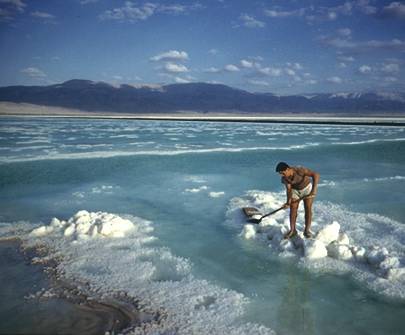 The Hashemite Kingdom of Jordan will not win any awards for exciting news. In fact, the most common front-page stories in Jordan usually involve King Abdullah inspecting troops, various royal family members receiving obscure awards or greeting C-list celebrities, the announcement by one awkward acronymic organization that it is creating a new spin-off acronym, or (seriously, folks), the painting of new guard rails at the Amman citadel.
The Hashemite Kingdom of Jordan will not win any awards for exciting news. In fact, the most common front-page stories in Jordan usually involve King Abdullah inspecting troops, various royal family members receiving obscure awards or greeting C-list celebrities, the announcement by one awkward acronymic organization that it is creating a new spin-off acronym, or (seriously, folks), the painting of new guard rails at the Amman citadel.(In all fairness, the coverage of Brangelina's recent layover in the Kingdom was well done.)
So we were taken aback when Jordan announced some real news: it will soon start construction on what is colourfully known as the Red-Dead Canal (aka Two-Seas canal).
 Originally conceived as a tripartite cooperation between Jordan, Israel and Palestine to restore healthy water levels to the Dead Sea and provide much needed drinking water to the parched region, the Red-Dead canal (from the Red Sea to the Dead Sea) has been maligned by environmental groups for its potentially devastating impact on both marine and desert ecosystems.
Originally conceived as a tripartite cooperation between Jordan, Israel and Palestine to restore healthy water levels to the Dead Sea and provide much needed drinking water to the parched region, the Red-Dead canal (from the Red Sea to the Dead Sea) has been maligned by environmental groups for its potentially devastating impact on both marine and desert ecosystems.Thanks to gross misuse of the Jordan River and its headwaters over the past 50 years, the Dead Sea is shrinking at a rate of a metre per year; in other words, within your grandkids' lifetimes they will be able to walk across it without getting their feet wet.
The Dead Sea is more than a mawkish boon to the tourism industry; it comprises a delicate ecosystem of bacteria, algae and minerals that is governed by the extremely unique chemical composition of Dead-Sea geography. Nobody wants to see it emptied either of its water or its aura.
Right, but how does flooding the Dead Sea--the most saline, undrinkable water on the planet--with water from the Red Sea via the Gulf of Aqaba--which also, last time we checked, is salty water--rescue a country like Jordan (92% desert and the 11th driest country on Earth) from its drinking-water problems.
The Red-Dead canal, in theory, would power itself with a series of hydroelectric dams which would harness enough energy to compensate for that required to get the water out of the Red Sea in the first place. Energy surpluses from the dams would then be used to power a desalination plant or two for much-needed fresh water, whose salty runoff would flow right on into the saltwater paradise that is the Dead Sea.
Critics maintain that importing foreign saltwater (along with toxic metals picked up during the desal process) into the Dead Sea will have as negative an effect on that ecosystem (and, to make the point broader, on the mineral-mining industries in the region) as the current problem of the Jordan River's increasing failure to trickle down. Moreover, desalination plants are known to consume huge amounts of (fossil-fuel) energy in their construction and operation, more than hydroelectric dams could compensate for. Additionally, digging canals across the desert to transport saline water could affect, through seepage, the precious reserves of aquifer-based freshwater underneath the sand.
Who will win this debate? We might actually have to follow Jordanian news to find out. Step aside, Brangelina!


No comments:
Post a Comment